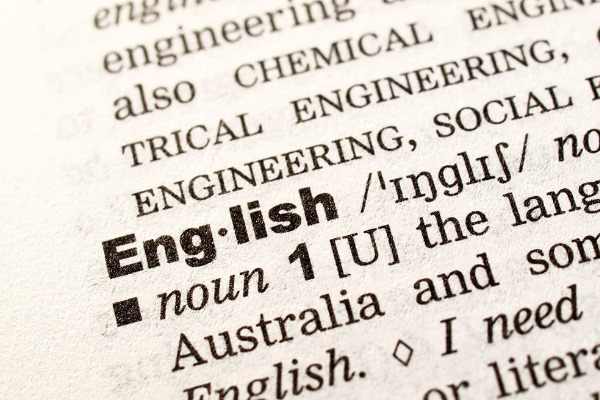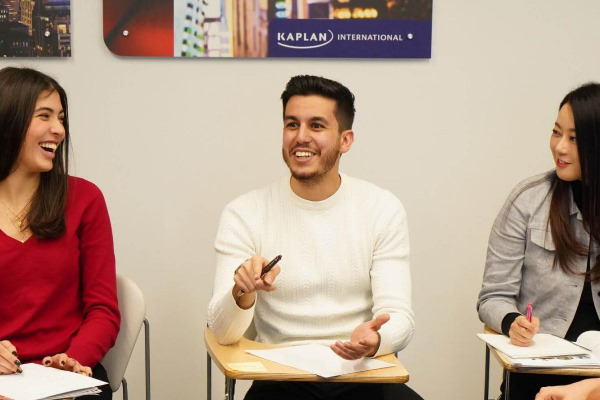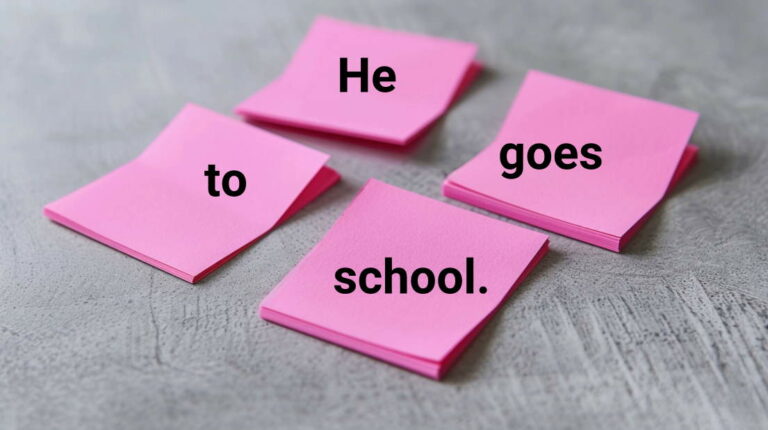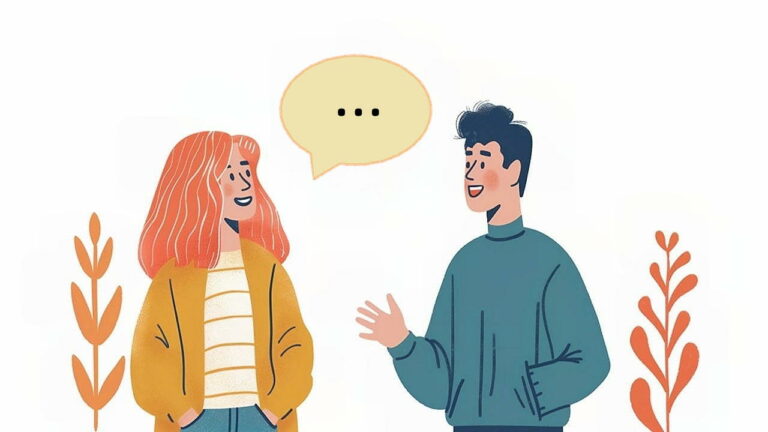گرامر Whether – توضیح به زبان ساده + تلفظ، تمرین و مثال

در دستور زبان انگلیسی، حرف ربط به کلمهای گفته میشود که جملات، بندها، عبارات یا کلمات را به هم پیوند میدهد. حروف ربط معمولا در ابتدای جملهواره وابسته میآیند و آن را به جملهواره مستقل وصل میکنند. whether و if حروف ربط وابسته نامیده میشوند و به همراه جملهوارههای دیگر عبارت وابسته را تشکیل میدهند. به همین خاطر، هر دو این کلمات عملکرد مشابهی دارند که گاهی باعث اشتباه گرفتن کاربرد آنها میشود. از نظر زبانشناسان، گرامر whether و if کاملا با هم تمایز دارد، اما گاهی میتوان آنها را بهجای هم استفاده کرد.
در این مطلب از مجله «فرادرس» به توضیح گرامر whether در زبان انگلیسی و همچنین تفاوتها و شباهتهای آن با if خواهیم پرداخت. سپس اشتباهات رایج هنگام استفاده از گرامر whether و if را توضیح میدهیم و مثالها و تمرینهایی را در این زمینه ارائه خواهیم کرد.
برای نشان دادن این که بیش از یک انتخاب داریم از whether استفاده میکنیم. در ادامه موقعیتهایی که باید در آنها از whether استفاده کرد آورده شدهاند.
گرامر Whether برای احتمالات
هنگامی که نمیدانیم کدام احتمال حقیقت دارد از whether استفاده میکنیم. به مثالهای زیر توجه کنید.
She asked me whether I was married.
او از من پرسید که آیا ازدواج کردهام یا خیر.
I don’t know whether she will come.
من نمیدانم او میآید یا نه.
I asked whether she had received the letter.
پرسیدم آیا نامه را دریافت کرده است یا نه.

گرامر Whether در سوالهای غیرمستقیم
در سوالهای غیرمستقیم که جواب بله یا خیر دارند و سوالهایی که در آنها «or» به کار رفته از whether یا «if» استفاده میکنیم. برای درک بهتر گرامر whether به مثال زیر توجه کنید.
نادرست: They asked me I was tired.
درست: They asked me whether (if) I was tired.
آنها از من پرسیدند که آیا خسته هستم.
نادرست: I want to find out the rooms have a shower or not.
درست: I want to find out whether (if) the rooms have a shower or not.
میخواهم بدانم که آیا اتاقها دوش دارند یا خیر.
نکته: در جملههای غیرمستقیم نمیتوانیم از «either» استفاده کنیم.
نادرست: We can’t say either tourism is harmful or beneficial.
درست: We can’t say whether tourism is harmful or beneficial.
نمیتوان گفت گردشگری مفید است یا مضر.
گرامر Whether در جملههای Whether … or
عبارت whether … or معمولا به عنوان «حرف ربط دوتایی» (Double Conjunction) در اول عبارت برای دادن دو انتخاب یا گزینه استفاده میکنیم. به مثالهای زیر توجه کنید.
I can’t decide whether to paint the wall green or blue.
نمیتوانم تصمیم بگیرم که دیوار را سبز کنم یا آبی.
She didn’t know whether he was laughing or crying.
او نمیدانست که میخندد یا گریه میکند.
She doesn’t know whether her son is dead or alive.
او نمیداند پسرش زنده است یا مرده.
I don’t know whether the answer is right or wrong.
نمی دانم پاسخ درست است یا غلط.
هنگامی که فاعل عبارت اصلی و عبارتی که در آن whether آمده یکسان باشد، از دو فرمول زیر استفاده میکنیم:
whether to + infinitive
whether + a finite clause
اما هنگامی که فاعل دو عبارت یکی نیست و با هم تفاوت دارد، فرمول دوم یعنی «finite clause» را به کار میبریم. برای درک بهتر گرامر whether به مثال زیر توجه کنید.
| فاعل یکسان | فاعل متفاوت |
|
We’re not sure whether to stay here for dinner or go somewhere else. (whether + to + infinitive) |
We’re not sure whether he’ll stay here for dinner or go somewhere else. (whether + finite clause) |
| ما مطمئن نیستیم که برای شام اینجا بمانیم یا به جای دیگری برویم. | ما مطمئن نیستیم که او برای شام اینجا میماند یا به جای دیگری میرود. |
|
We’re not sure whether we’ll stay here for dinner or go somewhere else. (whether + finite clause) | |
| ما مطمئن نیستیم که برای شام اینجا میمانیم یا به جای دیگری میرویم. |
گرامر Whether … or برای بیان یکسان بودن نتیجه
یکی دیگر از کاربردهای whether برای بیان کردن این مفهوم است که مهم نیست کدام احتمال واقعیت دارد، نتیجه همیشه به یک شکل و منوال خواهد بود. به مثال زیر توجه کنید.
Whether we go by road or rail, the journey will take at least four hours.
چه با جاده برویم چه با راه آهن، سفر دستکم چهار ساعت طول خواهد کشید.
Students will have to learn all the lessons whether they are easy or difficult.
دانشآموزان باید همه دروس را چه آسان و چه دشوار، یاد بگیرند.
گرامر Whether … or not
ما از ساختار «whether … or not» و «whether or not» برای پیشنهاد دادن گزینه جایگزین استفاده میکنیم. به مثالهای زیر توجه کنید.
We use the title Ms rather than Mrs (married woman) or Miss (unmarried woman) when we don’t know whether a woman is married or not.
ما هنگامی که نمیدانیم زنی متاهل است یا خیر، بهجای عنوان «Mrs» (زن متاهل) یا «Miss» (زن مجرد) از عنوان «Ms» (خانم) استفاده میکنیم.
I’m not sure whether or not to go to hiking this weekend.
من مطمئن نیستم که این آخر هفته به کوهنوردی بروم یا نه.
یکی دیگر از کاربردهای «whether … or not» برای زمانی است که میخواهیم معنای «it’s not important if» یا «it doesn’t matter if» را برسانیم. در این حالت نیز نمیتوانیم از «either» استفاده کنیم. به مثال زیر توجه کنید.
نادرست: He always said what he thought, either it was polite or not.
درست: He always said what he thought, whether it was polite or not.
او همیشه هر آن چه در فکرش میگذشت را، چه مودبانه بود و چه غیرمودبانه، به زبان میآورد.
در جملات امری یا دستوری نیز میتوانیم عبارت «whether … or not» را در اول یا اخر جمله بیاوریم.
Whether you like it or not, you’re going to have to look after your sister.
چه بخواهی چه نخواهی، باید از خواهرت مراقبت کنی.
You’re going to clean up your room after school, whether you like it or not.
چه بخواهی چه نخواهی، باید بعد از مدرسه اتاقت را تمیز کنی.
Jenny is going abroad whether or not she likes it.
«جنی» چه بخواهد چه نخواهد باید به خارج از کشور برود.
تفاوت Whether و If
همانطور که قبلا گفته شد برای نشان دادن این که بیش از یک انتخاب داریم از whether استفاده میکنیم. به طور مثال به جمله زیر توجه کنید.
Samantha didn’t know whether she was going to dine at a Chinese or Indian restaurant.
سامانتا نمیدانست که قرار است در رستوران چینی غذا بخورد یا هندی.
در این جمله، «سامانتا» میدانست که قرار است بیرون غذا بخورد، اما مطمئن نبود که قرار است چه نوع غذایی بخورد. حالا بیایید whether را با if جایگزین کنیم.
Samantha didn’t know if she was going to dine at a Chinese or Indian restaurant.
سامانتا نمیدانست که قرار است در یک رستوران چینی یا هندی ناهار بخورد یا نه.
این جمله حاکی از آن است که ممکن است سامانتا در یک رستوران چینی یا هندی غذا بخورد، یا اصلا بیرون شام نخورد. حالت درست و غلط نگارش این جمله را میتوانید در ادامه ببینید.
درست: Samantha didn’t mind whether they went out to eat or not.
نادرست: Samantha didn’t mind if they went out to eat or not.
برای سامانتا مهم نبود که برای غذا خوردن بیرون میروند یا نه.
بنابراین هنگامی که میخواهید بگویید چندین انتخاب وجود دارد، از استفاده از if خودداری کنید زیرا ممکن است اشتباهاً به گزینه دیگری دلالت کند.
قانون استفاده از if ساده است. وقتی جمله شرطی است از if استفاده کنید. جملات شرطی جملههایی هستند که حقایق را بیان میکنند (جملات شرطی صفر)، به اتفاقی که احتمال دارد در آینده رخ دهد (جملات شرطی نوع اول)، اتفاقات فرضی (جملات شرطی نوع دوم) و موقعیتهای واقعی یا فرضی که در زمان گذشته اتفاق افتاده (جملات شرطی نوع سوم) اشاره دارند. در این نوع جملات بهجای whether از if استفاده میکنیم. به مثالهای زیر توجه کنید.
If it rains, the grass outside will get wet.
اگر باران ببارد، علفهای بیرون خیس میشوند.
If I eat breakfast, I feel good all day.
اگر صبحانه بخورم، تمام روز احساس خوبی خواهم داشت.
If the temperature reaches zero degrees Celsius, water freezes.
اگر دما به صفر درجه سلیسیوس برسد، آب یخ میزند.
If you mix red and yellow, you get orange.
اگر رنگ قرمز و زرد را با هم مخلوط کنید، نارنجی به دست میآید.
If you freeze water, it becomes a solid.
اگر آب را منجمد کنید، جامد میشود.
Plants die if they don't get enough water.
گیاهان اگر آب کافی دریافت نکنند، میمیرند.
If my husband has a cold, I usually catch it.
اگر شوهرم سرما خورده باشد، معمولاً من هم از او میگیرم.
If public transport is efficient, people stop using their cars.
اگر حملونقل عمومی کارآمد باشد، مردم دیگر از اتومبیل خود استفاده نمیکنند.
If you mix red and blue, you get purple.
اگر قرمز و آبی را با هم مخلوط کنید، بنفش به دست میآید.
- جملات شرطی نوع اول:
We’ll go to Disney World if you get good grades.
اگر نمرات خوبی بگیری به پارک «دنیای دیزنی» میرویم.
If I have a test tomorrow, I will study tonight.
اگه فردا امتحان داشته باشم، امشب درس میخوانم.
If I get paid today, I will go shopping.
اگر امروز حقوق بگیرم، به خرید میروم.
We could go to Paris if we save enough money.
اگر پول کافی پسانداز کنیم میتوانیم به پاریس برویم.
If she knows the truth, she might not be happy.
اگر او حقیقت را بداند، ممکن است ناراحت شود.
They can do it if they try.
اگر تلاش کنند، میتوانند از پس این کار بربیایند.
If I see the man, I may say something to him.
اگر آن مرد را ببینم، ممکن است چیزی به او بگویم.
He should get a dog if he is lonely.
اگر تنهاست، باید سگ بگیرد.
If it doesn't rain tomorrow, we'll go to the beach.
اگه فردا باران نبارد به ساحل میرویم.
Arsenal will be top of the league if they win.
تیم «آرسنال» در صورت پیروزی در صدر لیگ قرار خواهد گرفت.
- جملات شرطی نوع دوم:
If I were rich, I would buy my mom a house.
اگر پولدار بودم، برای مادرم خانه میخریدم.
If I had a million dollars, I would buy a boat!
اگر یک میلیون دلار داشتم، قایق میخریدم!
If I were rich, I would travel the world.
اگر ثروتمند بودم، به دور دنیا سفر میکردم.
If she were to try harder, she might get better grades.
اگر بیشتر تلاش کند، ممکن است نمرات بهتری بگیرد.
They might be able to see it if they were more observant.
اگر دقت بیشتری میکردند، شاید میتوانستند آن را ببینند.
If I met the President, I would be too nervous to speak.
اگر رئیس جمهور را ملاقات میکردم، آنقدر مضطرب میشدم که نمیتوانستم صحبت کنم.
If he played sports, he might be in better shape.
اگر ورزش میکرد شاید وضعیت بهتری داشت.
He could get the promotion if he knew the right people.
اگر افراد درستی را بشناسد، میتواند ترفیع بگیرد.
If I won the lottery, I would buy a big house.
اگر در قرعهکشی برنده میشدم، یک خانه بزرگ میخریدم.
If I met the Queen of England, I would say hello.
اگر ملکه انگلیس را ملاقات میکردم، به او سلام میکردم.
She would travel all over the world if she were rich.
او اگر ثروتمند بود، به تمام دنیا سفر میکرد.
She would pass the exam if she ever studied.
اگر او درس بخواند در امتحان قبول میشود.

- جملات شرطی نوع سوم:
I would have called you if I had known about the accident.
اگر از تصادف خبر داشتم، با شما تماس میگرفتم.
If I had prepared for the interview, I would have gotten the job.
اگر برای مصاحبه آماده میشدم، آن کار را به دست میآوردم.
If I had known how you were going to react, I would have kept my mouth shut.
اگه میدانستم قرار است چه عکس العملی نشان دهی، دهنم را بسته نگه میداشتم.
If you had seen the movie, we could have talked about the ending.
اگر فیلم را دیده بودی، میتوانستیم در مورد پایان آن صحبت کنیم.
We might have crossed paths if I had left the house on time.
اگر به موقع از خانه بیرون میرفتم، ممکن بود به هم بربخوریم.
If she had studied, she would have passed the exam.
اگر درس میخواند، در امتحان قبول میشد.
If I hadn't eaten so much, I wouldn't have felt sick.
اگر آنقدر غذا نمیخوردم، حالم بد نمیشد.
If we had taken a taxi, we wouldn't have missed the plane.
اگر سوار تاکسی شده بودیم، هواپیما را از دست نمی دادیم.
She wouldn't have been tired if she had gone to bed earlier.
اگر زودتر به رختخواب میرفت خسته نمیشد.
She would have become a teacher if she had gone to university.
اگر به دانشگاه میرفت، معلم میشد.
He would have been on time for the interview if he had left the house at nine.
اگر ساعت 9 از خانه خارج میشد، به موقع برای مصاحبه حاضر میشد.
اشتباهات رایج هنگام استفاده از Whether و If
گرامر whether به علت چالشهای زیادی که دارد میتواند برخی زبانآموزان را به اشتباه بیندازد. در ادامه تعدادی از نکات مهم و اشتباهات رایج هنگام استفاده از whether و if را ارائه خواهیم کرد.
- whether قبل از مصدر با to به کار میرود.
نادرست: I’m not sure if to get a new laptop.
درست: I’m not sure whether to get a new laptop.
مطمئن نیستم لپتاپ جدید بگیرم یا نه.
نادرست: I don’t know if to buy the blue one or the red one.
درست: I don’t know whether to buy the blue one or the red one.
نمی دونم آبی را بخرم یا قرمز.
- برای بیان مفهوم «it’s not important that» از عبارت «whether … or not» استفاده میکنیم.
نادرست: We have to accept that they are part of our lives, either we like it or not.
درست: We have to accept that they are part of our lives, whether we like it or not.
ما چه بخواهیم چه نخواهیم، باید بپذیریم که آنها نیز بخشی از زندگی ما هستند.
- در جملههای غیرمستقیم فقط از whether استفاده میکنیم.
نادرست: She has to decide either she is going to accept the job or not.
درست: She has to decide whether she is going to accept the job or not.
او باید تصمیم بگیرد که آیا این کار را میپذیرد یا نه.

نکته: در صورتی که میخواهیم در جملههای غیرمستقیم انتخابهای مختلف را نشان دهیم، نمیتوانیم whether یا if را نیاوریم.
نادرست: I want to find out the rooms have a shower or not.
درست: I want to find out whether/if the rooms have a shower or not.
میخواهم بدانم آیا اتاقها دوش دارند یا نه.
- دقت لازم را داشته باشید که whether را با واژه weather به معنی «آبوهوا» اشتباه نگیرید.
The weather is unpredictable around here.
هوا در اینجا غیر قابل پیشبینی است.
- قبل از «or not» فقط میتوانیم از whether استفاده کنیم.
نادرست: Can you tell me if or not you’re interested in the job.
درست: Can you tell me whether or not you’re interested in the job.
آیا میتوانید به من بگویید که به این کار علاقه دارید یا نه؟
- بعد از حروف اضافه از if استفاده نمیکنیم و فقط whether میآوریم.
نادرست: We’re not interested in if we get great jobs and that kind of thing, we just want to have a good time.
درست: We’re not interested in whether we get great jobs and that kind of thing, we just want to have a good time.
ما علاقهای به این نداریم که آیا شغلهای عالی و از این قبیل چیزها به دست میآوریم یا خیر، ما فقط میخواهیم اوقات خوبی داشته باشیم.
برای درک بهتر به مثالهای زیر توجه کنید.
Later I argued with the doctor about whether I had hit my head since I couldn’t remember feeling it.
کمی بعد با دکتر بحث کردم که آیا به سرم ضربه خورده است یا خیر، چون به یاد نمیآوردم که درد گرفته باشد.
The police seemed mainly interested in whether there were any locks on the windows.
به نظر میرسید که پلیس عمدتاً به این علاقهمند بود که آیا روی پنجرهها قفلی وجود داشت یا خیر.
- بعد از افعالی که بیانگر شک و تردید هستند از whether یا if استفاده میکنیم.
I don’t know if/whether I should tell you this.
نمیدانم این را به شما بگویم یا نه.
I doubt if/whether they will share the results with the rest of us.
من شک دارم که آیا آنها نتایج را با ما به اشتراک میگذارند یا نه.
I’m not sure if/whether they’ll admit it.
مطمئن نیستم که آنها اعتراف میکنند یا نه.
سوالات رایج درباره گرامر Whether
در ادامه این مطلب، برای درک بهتر گرامر Whether به تعدادی از پرسشهای رایج در این خصوص پاسخ دادهایم.
کاربرد Whether در انگلیسی چیست؟
هنگامی که نمیدانیم کدام احتمال حقیقت دارد از whether استفاده میکنیم. در سوالهای غیرمستقیم که جواب بله یا خیر دارند و سوالهایی که در آنها «or» به کار رفته از whether یا «if» استفاده میکنیم. یکی دیگر از کاربردهای whether برای بیان کردن این مفهوم است که مهم نیست کدام احتمال واقعیت دارد، نتیجه همیشه به یک شکل و منوال خواهد بود. بنابراین، به منظور بیان یکسان بودن نتیجه از از گرامر Whether … or استفاده میکنیم.
تفاوت کاربرد Whether و if در زبان انگلیسی چیست؟
حروف ربط whether به معنای «آیا» برای اتصال دو یا چند جملهواره یا جمله استفاده میشود. این دو حرف ربط در مواقعی میتوانند بهجای یکدیگر به کار برده شود، ولی در اکثر مواقع نکات گرامری و معنای جمله ما رو مجبور به انتخاب یکی از آنها میکند. در سوالات غیرمستقیم میتوانیم از حروف ربط whether و if استفاده کنیم. در این حالت استفاده از if رایجتر بوده و whether معمولاً در شرایط رسمی به کار برده میشود. علاوهبراین، از حروف ربط whether و if همراه با جملهوارههای بعد از افعال مربوط به شک و تردید استفاده میکنیم.
جمعبندی
در این مطلب گرامر whether و if و همچنین کاربرد آنها را به کمک مثال و تمرین توضیح دادیم. در این بخش به طور خلاصه مهمترین نکاتی را که باید هنگام استفاده از whether و if بلد باشید توضیح خواهیم داد.
کاربرد whether و if به صورت زیر است.
- برای بیان گزینهها:
I don't know whether/if I'll go to the party on Saturday (or not).
نمیدانم شنبه به مهمانی میروم یا نه.
- برای بیان سوالی که قبلا پرسیده شده:
She asked me whether/if I was going to the party (or not).
او از من پرسید که آیا به مهمانی میروم (یا نه).
کاربرد whether به صورت زیر است.
- بعد از مصدر با to:
I don't know whether to go to the party or not.
نمی دانم به مهمانی بروم یا نه.
- بعد از حرف اضافه:
It depends on whether I get home early or not.
بستگی به این دارد که زود به خانه برسم یا نه.
We need to talk about whether to move house.
ما باید در مورد نقلمکان کردن یا نکردن صحبت کنیم.
- وقتی عبارتی که نقش فاعلی دارد با whether شروع میشود:
Whether we go to the party or to the cinema makes no difference to me.
برای من فرقی نمی کند مهمانی برویم یا سینما.
- وقتی بلافاصله عبارت «or not» میآید:
I'll be happy whether or not we go to the party.
چه به مهمانی برویم چه نرویم، خوشحال خواهم شد.
نکته: عبارت «or not» را میتوانیم بلافاصله بعد از whether یا در انتهای جمله بیاوریم. اما وقتی if را به کار میبریم، «or not» فقط در انتهای جمله قرار میگیرد.
I called Angela to find out whether or not she was going to the party.
I called Angela to find out whether she was going to the party or not.
I called Angela to find out if she was going to the party or not.
به آنجلا زنگ زدم تا بفهمم آیا او به مهمانی میرود یا نه.
کاربرد if به صورت زیر است.
- از if فقط در جملات شرطی استفاده میکنیم.
What would Max do if he lost his job?
اگر مکس کارش را از دست بدهد چه کار میکند؟
I'll surely come to your party if you invite me.
اگر مرا به مهمانیتان دعوت کنید، حتما خواهم آمد.
If I had missed the train, I wouldn't have arrived here on time.
اگر از قطار جا میماندم، به موقع به اینجا نمیرسیدم.
تمرین گرامر Whether
برای درک بهتر گرامر whether و if به تمرینهای زیر و پاسخ آنها توجه کنید.
تمرین اول
جاهای خالی را با کلمه مناسب پر کنید. توجه داشته باشید که برخی از جملات هم با whether به کار میروند و هم با if.
Q1: I am not sure ____ I will have the time.
Answer: I am not sure whether/if I will have the time.
Q2: She asked me ____ I was working.
Answer: She asked me if/whether I was working.
Q3: We discussed ____ we should throw a party to celebrate the occasion.
Answer: We discussed whether we should throw a party to celebrate the occasion.
Q4: ____ she will recognize me I am not sure.
Answer: Whether she will recognize me I am not sure.
Q5: There was a big argument about ____ she should resign.
Answer: There was a big argument about whether she should resign.
Q6: I can’t decide ____ to go on a diet or not.
Answer: I can’t decide whether to go on a diet or not.
Q7: ____ she can get along with your mother is another matter.
Answer: Whether she can get along with your mother is another matter.
Q8: He asked me ____ I had ever been to Europe.
Answer: He asked me whether/if I had ever been to Europe.
Q9: I don’t know ____ she will come.
Answer: I don’t know whether/if she will come.
Q10: Janet is going to marry Charles ____ she likes it or not.
Answer: Janet is going to marry Charles whether she likes it or not.
Q11: My sister can't decide ____ to buy a bicycle to go to work.
Answer: My sister can't decide whether or not to buy a bicycle to go to work.
Q12: Tom asked Julie ____ she'd like to go to the cinema on Saturday.
Answer: Tom asked Julie if she'd like to go to the cinema on Saturday.
Q13: "You've got to go to school ____ you like it or not!" said Charlie's mother.
Answer: "You've got to go to school whether you like it or not!" said Charlie's mother.
Q14: Caroline might come. It depends on ____ she can borrow her dad's car or not.
Answer: Caroline might come. It depends on whether she can borrow her dad's car or not.
Q15: We're not sure _____ we're going to change offices. It hasn't been decided yet.
Answer: We're not sure if we're going to change offices. It hasn't been decided yet.
Q16: _____ I buy a cake or make one myself won't make it less fattening!
Answer: Whether I buy a cake or make one myself won't make it less fattening!
Q17: I wonder _____ the boss is aware of the problem. It's hard to tell.
Answer: I wonder if the boss is aware of the problem. It's hard to tell.
Q18: The manager really doesn't care _____ the new timetable suits everyone.
Answer: The manager really doesn't care whether or not the new timetable suits everyone.
Q19: Diana says she's not sure ____ she'll have time to go to the hairdresser after work.
Answer: Diana says she's not sure if she'll have time to go to the hairdresser after work.
Q20: The price doesn't change ____ you travel by car or by train.
Answer: The price doesn't change whether you travel by car or by train.
تمرین دوم
برای ارزیابی عملکرد خود در رابطه با «مطلب گرامر whether»، میتوانید از آزمونی که در ادامه در اختیار شما قرار گرفته است استفاده کنید.
این آزمون شامل 20 سوال است و پس از پاسخ دادن به تمامی پرسشها و ظاهر شدن دکمه «دریافت نتیجه آزمون»، میتوانید نمره عملکردتان را مشاهده کنید و جوابهای درست و نادرست را نیز ببینید.
1. People can use the public beach ____ they follow the rules.
whether
if
2. Children are allowed on the beach ____ they are supervised.
whether
if
3. I don't know ____ a 12 year—old needs supervision.
if
whether or not
both
4. It's unclear ____ the sign prohibits young children or older children who come alone.
whether
if
both
5. A person cannot enter the beach area ____ the person has a pet.
whether
if
both
6. I'm not sure ____ that rule is just for dogs or all pets.
whether
if
both
7. ____ the rule is for all dogs or just dachshunds (long dogs) is unclear.
whether
if
both
8. The lifeguard decides ____ kids can play alone in the water.
whether
if
both
9. ____ the children know how to swim is the lifeguard's concern.
if
whether or not
both
10. ____ a lifeguard sees a dog and its owner on the beach, he kicks them out.
if
whether
both
11. It doesn't matter ____ or not the dog is on a leash.
whether
if
both
12. Visitors have to obey the rules ____ they want to use the beach.
whether
if
both
13. I have been wondering ____ to build my own house.
whether
if
both
14. We need a decision on ____ the second answer is also correct.
if
whether
both
15. Its longevity may depend on _____ it starts to lay eggs.
if
whether
both
16. Go to the party _____ you must.
if
whether
both
17. I need to talk about _____ the kids are old enough to travel on their own.
if
whether
both
18. You do realize that _____ it's a girl, we're going to be unevenly matched.
if
whether
both
19. You don't walk away _____ you love someone. You help the person.
if
whether
both
20. The day will happen _____ you get up.
whether
whether or not

تمرین سوم
جاهای خالی را با کلمه مناسب پر کنید.
Q1: _____ he came to stay with you, I'd be really relieved.
Answer: If he came to stay with you, I'd be really relieved.
Q2: When Charlie arrived, he asked ____ he could stay for a few days, or if he had to leave tonight.
Answer: When Charlie arrived, he asked whether he could stay for a few days, or if he had to leave tonight.
Q3: I'll be so happy ____ Santa brings me what I secretly hope for in my life.
Answer: I'll be so happy if Santa brings me what I secretly hope for in my life.
Q4: ____ to go on working, or to stop immediately... he doesn't know what to do!
Answer: Whether to go on working, or to stop immediately... he doesn't know what to do!
Q5: Tell me _____ you'll have dinner with us tonight.
Answer: Tell me whether you'll have dinner with us tonight.
Q6: Of course... ____ I had imagined the outcome, I'd have acted differently.
Answer: Of course... if I had imagined the outcome, I'd have acted differently.
Q7: ____ I'll invest in your project will depend on the guarantees you can give me.
Answer: Whether I'll invest in your project will depend on the guarantees you can give me.
Q8: _____ you come with me or not will not change my decision.
Answer: Whether you come with me or not will not change my decision.
Q9: You'd be much more relaxed _____ you knew your text by heart.
Answer: You'd be much more relaxed if you knew your text by heart.
Q10: _____ I invest in your project, I want to be able to decide of the strategy we'll follow.
Answer: If I invest in your project, I want to be able to decide of the strategy we'll follow.
Q11: Alex asked Chloe ______ she had heard the announcement.
Answer: Alex asked Chloe if she had heard the announcement.
Q12: Sophie doesn't know ______ to accept the invitation.
Answer: Sophie doesn't know whether or not to accept the invitation.
Q13: _____ I walk or take my bicycle won't change the weather!
Answer: Whether I walk or take my bicycle won't change the weather!
Q14: Sam said he would contact Paul _______ there was confirmation.
Answer: Sam said he would contact Paul if there was confirmation.
Q15: The product will be reimbursed _______ you have a receipt.
Answer: The product will be reimbursed if you have a receipt.
Q16: The product will be reimbursed ______ you have a receipt.
Answer: The product will be reimbursed if you have a receipt.
Q17: Hugo hasn't decided ______ to accept the offer.
Answer: Hugo hasn't decided whether or not to accept the offer.
Q18: I wonder ______ Carla knows that the match has been cancelled.
Answer: I wonder if Carla knows that the match has been cancelled.
Q19: The price doesn't change _____ it's liquid or solid.
Answer: The price doesn't change whether it's liquid or solid.
Q20: I'm going to the party anyway, ______ Tom comes with me.
Answer: I'm going to the party anyway, whether or not Tom comes with me.
مطلبی که در بالا مطالعه کردید بخشی از مجموعه مطالب «آموزش گرامر زبان انگلیسی – به زبان ساده» است. در ادامه، میتوانید فهرست این مطالب را ببینید:
- حرف اضافه در انگلیسی چیست ؟ — به زبان ساده و کامل — آموزش Prepositions
- گرامر used to — از صفر تا صد
- انواع جملات شرطی در انگلیسی – از صفر تا صد با مثال، تمرین و تلفظ صوتی
- فرمول زمان حال ساده در انگلیسی — راهنمای سریع و کاربردی
- افعال ing دار چیست و چه زمانی فعل ing می گیرد ؟ — به زبان ساده + مثال و تمرین
- گرامر Too و Enough — به زبان ساده و با مثال
- گرامر Going to – به زبان ساده + مثال، تمرین و تلفظ صوتی
- افعال نقل قول در انگلیسی — به زبان ساده و با مثال
- گرامر if در انگلیسی — به زبان ساده و با مثال
- نقل قول در انگلیسی — به زبان ساده + مثال، تمرین و تلفظ
- آموزش گرامر Did – به زبان ساده و با مثال، تمرین و تلفظ صوتی
- کلمات پرکاربرد مخفف در انگلیسی — به همراه معنی
- گرامر Wish و کاربرد Wish – به زبان ساده + مثال و تمرین
- ماضی بعید در انگلیسی – به زبان ساده + فرمول و مثال
- آموزش زمانهای انگلیسی | به زبان ساده و سریع
- آموزش گرامر Do و Does – با مثال + تمرین و تلفظ
- افعال بی قاعده در زبان انگلیسی – به زبان ساده + مثال، تمرین و تلفظ صوتی
- افعال جدا نشدنی در انگلیسی — به زبان ساده و با مثال
- افعال جداشدنی در انگلیسی — به زبان ساده
- جملات سوالی زمان حال ساده در زبان انگلیسی + تمرین و مثال
- جملات شرطی نوع اول در انگلیسی – با مثال، تمرین و تلفظ
- گرامر Would have been — به زبان ساده و با مثال
- متمم در انگلیسی — به زبان ساده و با مثال
- قواعد جمله سازی در انگلیسی – به زبان ساده + مثال، تمرین و تلفظ صوتی
- سیلاب در زبان انگلیسی چیست ؟ – توضیح به زبان ساده + مثال و تمرین
- گرامر ماضی نقلی در انگلیسی – با مثال، تمرین و تلفظ صوتی
- پسوندهای اسم ساز در انگلیسی – فهرست کامل با مثال
- افعال عبارتی در زبان انگلیسی – کامل + مثال و تمرین
- کاربرد was و were – چه زمانی از was و were استفاده می کنیم ؟
- جمله گذشته ساده در انگلیسی + ترجمه، تمرین و نمونه سوال
- علائم گذشته ساده در انگلیسی چه هستند؟ – به زبان ساده + مثال و تمرین
- چه زمانی از ing استفاده می کنیم ؟ – راهنمای کامل + مثال، تمرین و تلفظ صوتی
- مصدر بدون to در زبان انگلیسی چیست ؟ + مثال و تمرین
- انواع گذشته در انگلیسی و مرور سریع افعال گذشته — راهنمای کامل
- گرامر to به زبان ساده و کامل + مثال و تمرین
- تست زمان حال ساده انگلیسی با جواب — نمونه سوال و پاسخ
- اجزای کلام در انگلیسی یا Parts of Speech چیست؟ — به زبان ساده + مثال
- کمیت سنج ها در انگلیسی – به زبان ساده + مثال و تمرین
- جمع بستن اسم در انگلیسی – به زبان ساده + مثال و تمرین
- وجه التزامی در انگلیسی – روش ساخت به زبان ساده + مثال و تمرین
- آینده در گذشته کامل در انگلیسی – به زبان ساده + مثال و تمرین
- افعال to be در انگلیسی چیست ؟ – به زبان ساده + مثال و تمرین
- فرق بین Will و Going to – به زبان ساده + مثال و تمرین
- سوم شخص مفرد در انگلیسی – به زبان ساده + مثال
- گرامر Have Got — توضیح به زبان ساده + مثال
- کاربرد do در انگلیسی و جملات انگلیسی — با مثال و به زبان ساده
- جملات آرزویی در انگلیسی یا چطور با Wish جمله بسازیم؟ + مثال و تمرین
- جمله با Could you و توضیح گرامر Could you please + مثال های متنوع
- افعالی که Ing نمی گیرند — توضیح و لیست افعال
- انواع جمله در انگلیسی — ساختار جملات با مثال
- انواع زمان حال در انگلیسی — توضیح + مثال و تلفظ
- جایگاه فعل در زبان انگلیسی — توضیح به زبان ساده + مثال و تلفظ
- حروف ندا در انگلیسی — به زبان ساده و با مثال
- سوال ساختن با Whose — به زبان ساده و با مثال
- سوال ساختن با Going to — به زبان ساده و با مثال
- سوال ساختن با What – به زبان ساده + مثال، تمرین و تلفظ صوتی
- سوال ساختن با Who – به زبان ساده + مثال، تمرین و تلفظ
- فاعل در انگلیسی چیست ؟ — به زبان ساده و با مثال
- کاربرد On و In در زبان انگلیسی — راهنمای کامل + مثال
- گرامر How many — توضیح به زبان ساده + تمرین و مثال
- نشانه های حال ساده در انگلیسی — کامل و با مثال
- گرامر as as – توضیح به زبان ساده + مثال، تمرین و تلفظ
- گرامر As if – توضیح به زبان ساده + مثال، تمرین و تلفظ صوتی
- اجزای جمله در زبان انگلیسی – ترتیب قرار گرفتن + مثال، تمرین و تلفظ صوتی
- ساختارهای موازی در زبان انگلیسی – توضیح گرامر + مثال، تمرین و تلفظ صوتی
- اسامی ملکی در زبان انگلیسی — به زبان ساده + مثال
- گرامر Either و Too — توضیح + مثال و تلفظ
- پسوندهای قیدساز در انگلیسی – فهرست کامل با مثال و تمرین
- جملات امری در انگلیسی — با مثال و به زبان ساده
- جایگاه قید در جمله انگلیسی — به زبان ساده و با مثال
- سوال ساختن با افعال To be — کامل و با مثال
- زمان حال جاری در انگلیسی — به زبان ساده + مثال
- سوال ساختن با Can — به زبان ساده و با مثال
- گرامر Not only But also — توضیح به زبان ساده + مثال
- گرامر Would like در زبان انگلیسی — توضیح کاربرد با مثال
- سوال ساختن با Will — گرامر سوال پرسیدن + مثال
- گرامر Could — به زبان ساده و با مثال
- گرامر Get — به زبان ساده و با مثال
- گرامر Already و Just — توضیح کامل و مثال
- جمله خبری به انگلیسی – به زبان ساده، با مثال و تلفظ صوتی
- گرامر How much – توضیح به زبان ساده + مثال، تمرین و تلفظ صوتی
- سوال ساختن در انگلیسی – تکنیک ها و فرمول ها + مثال، تمرین و تلفظ صوتی
- ماضی بعید استمراری در انگلیسی – توضیح + مثال، تمرین و تلفظ صوتی
- افعال حسی در زبان انگلیسی – آموزش گرامر به زبان ساده + مثال، تمرین و تلفظ
- افعال لازم و متعدی در انگلیسی – توضیح + مثال، تمرین و تلفظ صوتی
- پیشوند در انگلیسی چیست ؟ – به زبان ساده + مثال و تمرین
- کلمات پرسشی در انگلیسی – توضیح گرامر و ساختار + مثال و معنی
- کاربرد Let’s در زبان انگلیسی – به زبان ساده + مثال، تمرین و تلفظ صوتی
- کاربرد When و While در گذشته استمراری – توضیح تفاوتها + مثال، تمرین و تلفظ صوتی
- گرامر Hope — توضیح گرامر + مثال، تمرین و تلفظ صوتی
- گرامر Either Neither – به زبان ساده + مثال، تمرین و تلفظ صوتی
- گرامر So و Such — کامل + مثال و تلفظ
- گرامر There is و There are + کاربرد در انگلیسی با مثال
- تبدیل صفت به قید در انگلیسی — راهنمای کامل + تمرین و مثال
- مجهول حال استمراری در انگلیسی — توضیح و با مثال
- کاربرد مصدر انگلیسی — به زبان ساده و با مثال
- کاربرد it در انگلیسی — توضیح به زبان ساده + مثال، تمرین و تلفظ
- کاربرد Make در انگلیسی — توضیح و مثال + تمرین
- کاربرد so that در انگلیسی چیست ؟ — توضیح + مثال، تمرین و تلفظ
- کاربرد some و any — به زبان ساده + مثال، تمرین و تلفظ
- گرامر How Often — به زبان ساده + مثال، تمرین و تلفظ
- گرامر No Matter — به زبان ساده + مثال کاربردها، تمرین و تلفظ
- فعل بودن در انگلیسی – کاربرد و گرامر به زبان ساده + مثال
- کاربرد Usually در زبان انگلیسی و جمله + مثال، تمرین و تلفظ
- اول شخص مفرد در انگلیسی – به زبان ساده + مثال
- سوال با Where – نحوه و فرمول ساخت + مثال، تمرین و تلفظ
- پیشوندهای منفی ساز در انگلیسی — آموزش کامل + نکات، مثال و تمرین
- انواع ضمایر در انگلیسی — توضیح و مثال
- پسوند ful در انگلیسی — توضیح کاربردها به زبان ساده
- عبارت حرف اضافه ای در زبان انگلیسی — توضیح و آموزش عبارت ها به زبان ساده
- کاربرد a lot of و lots of در زبان انگلیسی + مثال و تمرین
- حرف اضافه at در انگلیسی و کاربردهای آن + مثال و تمرین
- تفاوت صفات ملکی با ضمایر ملکی در انگلیسی — به زبان ساده
- گرامر Although — به زبان ساده و با مثال + تمرین
- کاربرد علامت سوال در زبان انگلیسی — به زبان ساده + مثال، تمرین و تلفظ
- کاربرد as در زبان انگلیسی — آموزش از صفر تا صد + مثال و تمرین
- گرامر Whether – توضیح به زبان ساده + تلفظ، تمرین و مثال(همین مطلب)
- کاربرد Would در زبان انگلیسی – توضیح ساده و کاربردی + مثال و تمرین
- پسوند tion در انگلیسی — توضیح کاربردها به زبان ساده + مثال
- ضمایر شخصی در زبان انگلیسی + توضیح به زبان ساده + مثال و تمرین
- تست ضمایر انگلیسی + جواب و آزمون رایگان
- کاربرد کاما در انگلیسی – نحوه استفاده در جملات + مثال و تمرین
- تفاوت Since و For — به زبان ساده + مثال
- کاربرد done - به زبان ساده + مثال و تلفظ و تمرین
- گرامر However در زبان انگلیسی – توضیح به زبان ساده + مثال و تمرین
- تفاوت While و During در انگلیسی – به زبان ساده + مثال و تمرین
- S مالکیت در انگلیسی — توضیح گرامر + مثال، تمرین و تلفظ
- چه زمانی فعل ed می گیرد؟ – گرامر ed گرفتن فعل + مثال، تمرین و تلفظ صوتی
- منفی کردن جمله در انگلیسی — توضیح کامل + مثال و تمرین
- گذشته فعل های انگلیسی – لیست کامل و کاربردی + تمرین و تلفظ
- صرف فعل در زبان انگلیسی — اصول و روش ها به زبان ساده
- قید مکان در انگلیسی — آموزش Adverbs of Place — به زبان ساده










